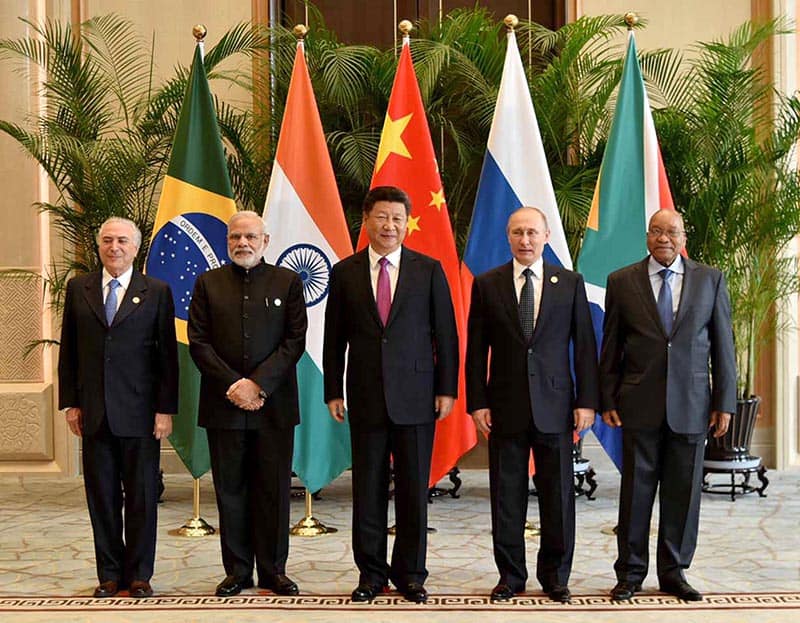New Delhi: Against the backdrop of criticism that it could not secure a reference by BRICS leaders to cross-border terror at their Goa summit, the government today said the joint declaration by the 5-nation grouping contained “strongest ever” language against terrorism.
Rejecting criticism, Spokesperson for the External Affairs Ministry Vikas Swarup said terrorism was accorded the “centrality” at the Goa summit in more substantive manner than even the Antalaya G20 Summit which was held in the shadows of the Paris terror attack.
“The Goa Declaration contains the strongest-ever language against terrorism among all past BRICS summits. The word terrorism/terror features some 37 times in the declaration,” he said at a media briefing.
He said there was “unprecedented condemnation” of terrorism at the summit and that BRICS leaders strongly condemned the recent attacks in India.
“BRICS Leaders for the first time called upon all States to prevent terrorist action from their territories. They agreed that religion is no justification for terrorism,” said Swarup, adding “I do not know on what basis it is being said that this was a weak declaration on terrorism.”
The Modi government faced intense opposition criticism for its “abject failure” to get a reference to terrorism emanating from Pakistan included in the BRICS declaration.
The MEA spokesperson said BRICS leaders, for the first time, called for effective implementation of UN Security Council Resolution on Counter Terrorism and sought enhancing the effectiveness of the UN Counter Terrorism Framework.
“They called upon all States to counter terrorism, radicalisation, recruitment, terrorist movement, dismantling of terrorist bases, money laundering, drug trafficking. The leaders also called for expedited adoption of the Comprehensive Convention on International Terrorism (CCIT),” he said.
Swarup said the BRICS leaders also recongnised the growing nexus between weapons of mass destruction and terrorism.
“BRICS as a group (that) focuses on global issues. We are all aware that the current global architecture is not reflected in some of the institutions of global governance.
BRICS is one example of a grouping which represents current realities.
“G20 is another example. We hope a reformed United Nations Security Council will be another example so that it does not remain mired in the geopolitics of 1945 and reflects and represents the realities of the 21st Century,” he said.

